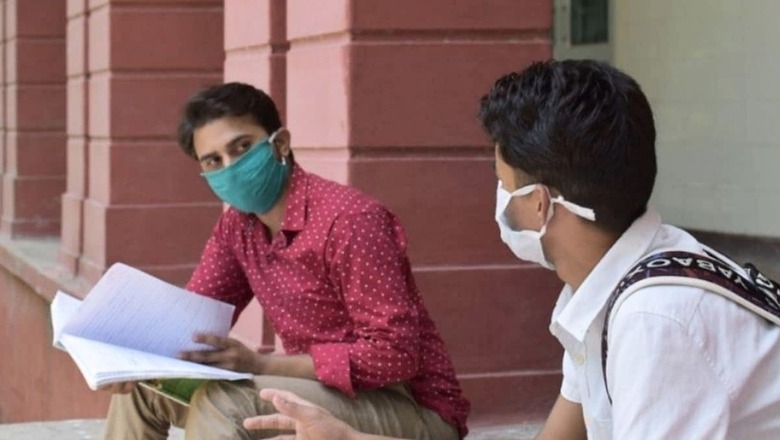
views
Almost all key government exams, such as the Union Public Service Commission (UPSC), Staff Selection Commission (SSC), and Railway Recruitment Board (RRB), include current affairs. It is important to keep up with current news, social issues, global events, government policies, sports, and scientific advancements. If you’re preparing for a government, competitive exam, or recruiting drive, here’s a roundup of the week’s most important news stories:
India Builds Asia’s Longest Mountain Water Tunnel in Himachal Pradesh
The second phase of the Parvati project, which is intended to generate power near Kullu, Himachal Pradesh, has completed its final barrier. The headrace tunnel, which will transport water from the Parvati River at Barsheni to Sihund in the Sainj Valley, has been completed. This is Asia’s longest water tunnel, 32 km long and six meters wide. The digging began in Pulga in the Manikaran Valley and has now been completed, only the lining work remains. The Parvati project’s first phase was finished earlier, and power generation is currently ongoing. With the completion of this 32-kilometer-long tunnel, power generation for Phase Two of the Parvati Project will commence shortly.
India to Set Up ‘Cloud Chamber’ To Study Artificial Rain
To improve its weather forecasting observations, India has launched an ambitious initiative to install 100 radars around the country by March 2026. With 39 radars now operational, the goal is to install about 61 S-band, C-band and X-band radars with varied detection ranges. The detection range of S-band radars is 400 km, that of C-band radars is up to 200 km and of X-band radars is 100 km. Currently, India has a radar every 432 km, whereas the United States has one per 150 km. The India Meteorological Department (IMD) will lead the Rs 2,000 crore Mission Mausam, which would make India ‘weather-ready’ and ‘climate savvy’, beginning in September. Vertical Wind Profiles and radiometers will be added at 15 places, as well as an increase in the number of radiosondes from the current 54. This equipment will provide day and night data on wind direction, temperature and humidity up to a height of 12 km every 15 minutes.
Ayushman Bharat For People Above 70
People over the age of 70 can now benefit from the world’s largest health insurance system by signing up on the Ayushman Bharat portal. Individuals aged 70 or older, according to their Aadhar Card, are eligible to apply for the Modi government’s major health insurance policy, Ayushman Bharat Pradhan Mantri Jan Arogya Yojana (AB PM-JAY). On September 11, the Union Cabinet announced that the policy would now cover everyone aged 70 and up, regardless of income. The programme is expected to be operating within a week. According to government data, more than half of those over the age of 70 are women, with 54 per cent of these women being widows.
Top Official Bursts Pakistan’s Oil & Gas Discovery Bubble
A top source in a Pakistan-owned oil and gas company told CNN-News18 that the seismic assessment in the country cannot yet be considered a discovery of oil and gas reserves. This despite reports that significant deposits have been discovered within Pakistan’s territorial waters following a three-year survey in collaboration with a friendly country. “It’s just a seismic assessment in the Arabian Sea,” a top official of the Oil & Gas Development Company (OGDCL) stated, adding that it was premature to say that massive hydrocarbon reserves had been discovered. According to the official, the survey data is still being processed to evaluate and characterise the potential of hydrocarbon resources.
Indian Navy Launches 2 Anti-submarine Warfare Vessels
On September 9, the Indian Navy launched two shallow-water anti-submarine warfare ships, dubbed Malpe and Mulki, at Cochin Shipyard Ltd. (CSL) in Kochi. These vessels are the fourth and fifth to be launched under the Eight Anti-Submarine Warfare Shallow Water Craft project, which began with a contract signed on April 30, 2019, between the Indian Ministry of Defence and CSL. The project is part of India’s bigger ‘Aatmanirbhar Bharat’ (self-reliant India) strategy, which seeks to minimise reliance on foreign defence imports. More than 80 per cent of the resources utilised to construct these ships are supplied domestically, demonstrating India’s expanding defence industrial prowess.




















Comments
0 comment